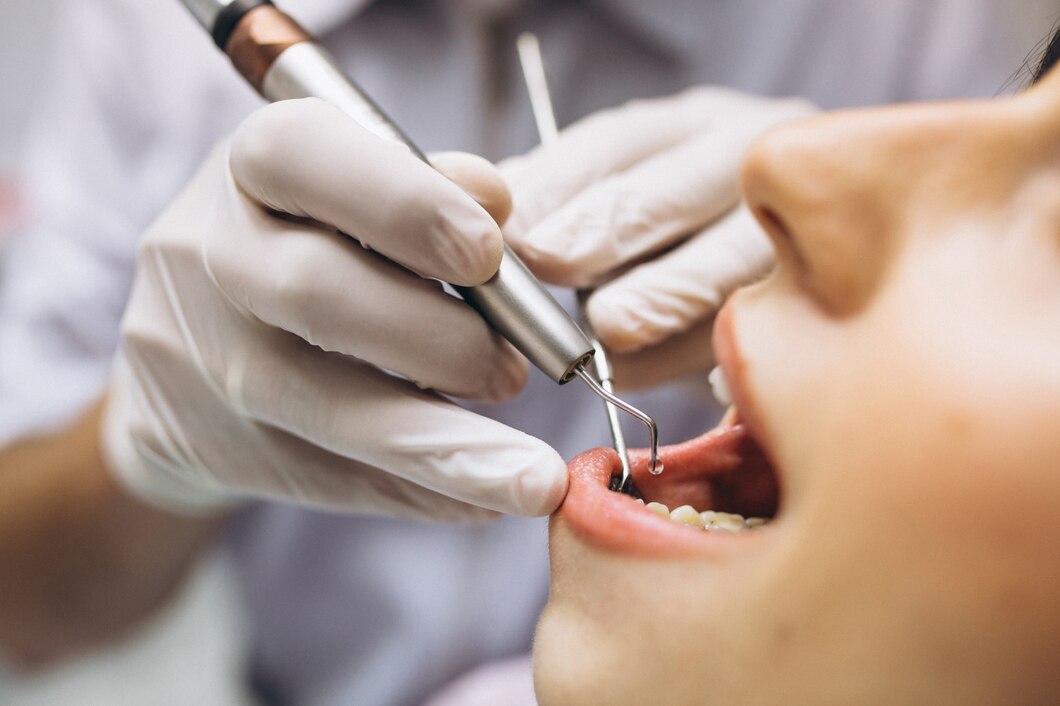Routine dental check-ups are not only essential for maintaining oral health but also play a crucial role in early detection of serious conditions such as oral cancer. Oral cancer often does not present clear symptoms in its early stages, which leads many people to remain unaware of its presence until it reaches an advanced stage. According to the Faculty of Dentistry at Universitas Gadjah Mada (FKG UGM), early detection is a highly effective first step in preventing the progression of oral cancer. By conducting regular check-ups, dentists can identify early warning signs, such as white or red patches in the mouth, non-healing sores, and lumps in the gums or palate.
Faster Medical Intervention
During routine check-ups, dentists examine the entire oral cavity, including the gums, tongue, inner cheeks, and roof of the mouth. This process involves both visual inspection and palpation to ensure there is no swelling or suspicious changes. Based on data from FKG UGM, early detection of oral cancer involves simple physical examinations that take only a few minutes but provide significant benefits. For example, detecting pre-cancerous lesions can help patients receive faster medical intervention before cancer cells spread further. Additionally, this examination includes an evaluation of the neck and jaw to detect swollen lymph nodes, which may indicate the spread of cancer.
Identifying Risk Factors
Routine check-ups also provide an opportunity for dentists to identify oral cancer risk factors in patients. FKG UGM emphasizes the importance of educating patients about habits that increase the risk of oral cancer, such as smoking, excessive alcohol consumption, and Human Papillomavirus (HPV) infections. Through these examinations, dentists can offer preventive advice and educate patients on the importance of maintaining oral hygiene and reducing exposure to these risk factors. Early detection through routine check-ups helps raise public awareness about the importance of comprehensive oral health care.
Increased Life Expectancy
In addition to reducing the risk of oral cancer, early detection also contributes to increased life expectancy. According to FKG UGM, patients diagnosed with oral cancer at an early stage have a higher survival rate compared to those diagnosed at later stages. Early treatment allows for more effective interventions, such as minor surgeries to remove affected tissue or more focused radiation therapy. Therefore, early detection not only accelerates the treatment process but also leads to better long-term outcomes.
However, public awareness about the importance of routine dental check-ups still needs improvement. Many people still believe that dental check-ups are only necessary when experiencing pain or discomfort. In fact, these check-ups are a crucial preventive step. Education efforts, like those carried out by FKG UGM, need to be intensified to help the public understand the importance of early detection in preventing oral cancer. Visiting the dentist every six months is a key investment in long-term health.
With routine check-ups, we can detect and address oral health issues early, including the risk of oral cancer, thus increasing the chances of recovery and preserving quality of life. This also supports the achievement of the Sustainable Development Goals (SDGs), particularly SDG 3 (Good Health and Well-Being) and SDG 4 (Quality Education).
Author: Rizky B. Hendrawan | Photo: Freepik

